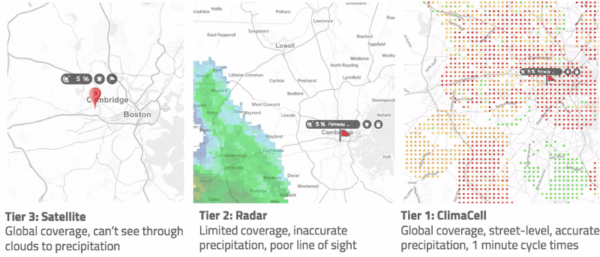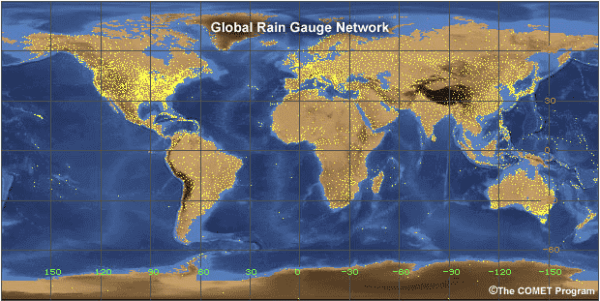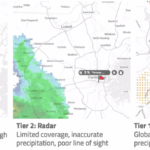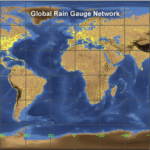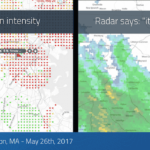In the fight to protect our planet against climate change, we need every weapon we can get our hands on. That means reducing carbon emissions, switching to “green energy,” and planting as many trees as possible.
Another way to reduce our carbon footprint? Utilizing artificial intelligence (AI) to optimize power grids and increase overall energy efficiency.
The trade-off isn’t perfect – data centers that power AI gobble up quite a bit of the world’s electricity – but with proper management, the benefits of machine learning vastly outweigh the perceived negatives, and can help us turn the tide against a steadily warming earth.
How does climate change artificial intelligence work?
All “thinking” computer systems operate by limiting the amount of redundant manual labor that is otherwise given to humans. Collating and interpreting various sets of data, for instance, used to be accumulated by hand. When that task is given to a robot and assigned various parameters, the efficiency goes up and the errors go down.
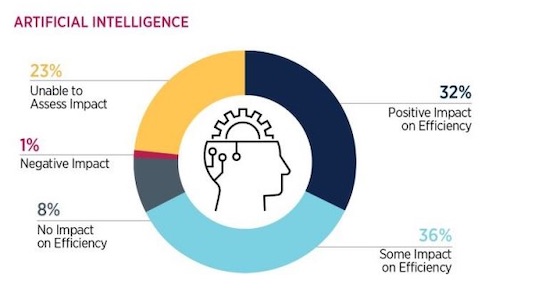
Image from https://blog.pelican.ai/news/articles/is-treasury-missing-the-artificial-intelligence-opportunity
How can artificial intelligence fight climate change?
The applications for this type of technology are endless. If a farmer had better, more accurate weather forecasts made in real-time, they could know the best times to plant and harvest. Their irrigation would be more efficient due to the specific conditions at their field, rather than in their general area.
Climate AI is used in everything from Google tools to self-driving cars, so there’s no question it can help most businesses reduce their emissions.
Optimizing energy output
By far, the biggest advantage to an AI-based climate change initiative is optimizing the available energy that is already in production. Every year, an enormous amount of energy is wasted by non-use; things such as not turning off the lights when you leave a room can cost billions in wasted energy.
Even moving homes puts extreme pressure on the environment. Every year Americans use 353 million gallons of fuel when moving homes and create 8.4 million tons of garbage. Is there a way to optimize that output and reduce the impact by even a few percentage points?
Artificial intelligence programs can help not only improve power storage for companies, but also feed renewable energy – such as solar and wind – into a power grid to mitigate the overall loss. In localized scenarios, an Ai program could even reverse the electricity from an electric car to a home to make up the loss, reducing the strain on the power grid.
Monitor emission offenders
In addition to reducing non-commercial loss, artificial intelligence can also help identify leaks in the energy supply chain. On average, nearly 5% of electricity is lost during production and distribution, so a huge improvement can be seen in revenue and energy preservation if we can simply make our energy systems more efficient.
Google is one of the most recent examples of this type of venture. In 2015, Google was able to reduce the energy usage for their data centers by up to 40% by using AI to spot and reduce waste.
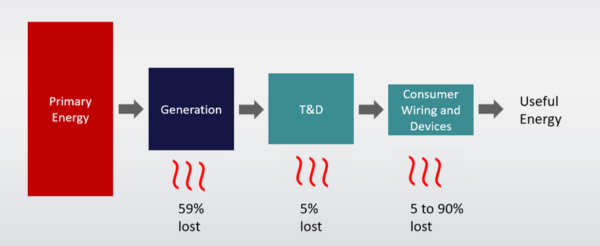
Image from https://www.enerdynamics.com/Energy-Currents_Blog/How-Much-Primary-Energy-Is-Wasted-Before-Consumers-See-Value-from-Electricity.aspx
Additionally, AI climate data is valuable to financial institutions and independent investors. It can help us make responsible decisions by showing us how to invest in sustainability, as well as highlight which companies are doing more harm than good to the environment.
Process data
Computing power accounts for an enormous amount of the world’s overall power usage – no surprise, given the proficiency of electronics in everyday life.
But how does all of that energy usage contribute up to real-life environmental impacts? By monitoring upticks in power usage and correlating it with the rise in sea levels, for instance, scientists can track the actual effect of one on the other. They can then make recommendations for new regulations to governmental agencies.
Of course, this type of data processing requires a huge amount of computing power itself, but artificial intelligence can do it much quicker and more efficiently than regular computers. And, in the race to limit the melting of the polar ice caps, every second counts.
Provide accurate forecasts
Computer modeling is one of the best ways to determine the long-term impact of decisions made today. The effects of a climate policy enacted in 2022 will not be seen until years down the road, so having as accurate of forecasts as possible is paramount to making sure the right choices are made.
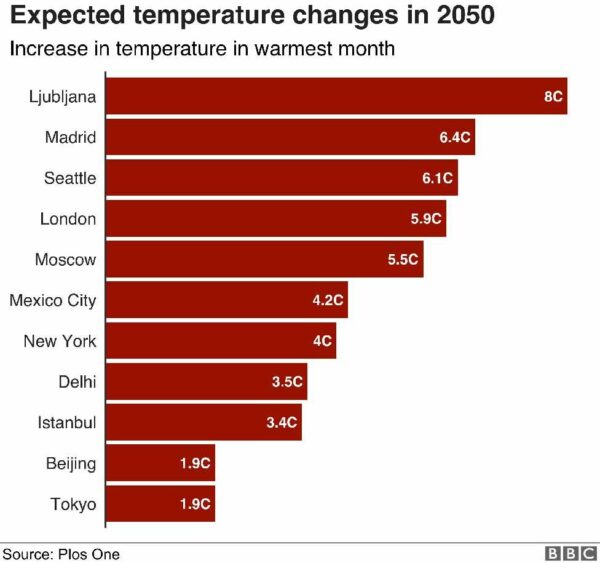
Image from https://www.bbc.com/news/newsbeat-48947573
Artificial intelligence helps by not only creating these types of sophisticated computer models, but combining them to get the best overall picture of the future. Companies may even be able to use these models to create additional sources of income for their business, or by showing everyday people what their future will look like on the current trajectory.
Visual presentations like computer models are extremely powerful tools, but only if they’re accurate. Artificial intelligence helps climate scientists form the best forecast for the future so that we can make the tough calls today.
Climate change AI will save lives
Complex scenarios require complex technology, and that’s exactly what artificial intelligence provides us. While it won’t give us every answer we need to save our world (and it won’t do the work for us), it’ll still help us see the world as it is today, so we can push towards a better world tomorrow.
See How Tomorrow.io Can Automate Your Weather and Climate-Related Decisions

